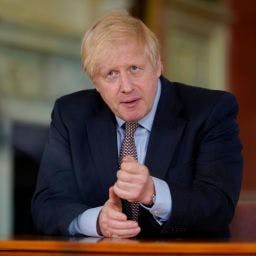- Coronavirus pandemic
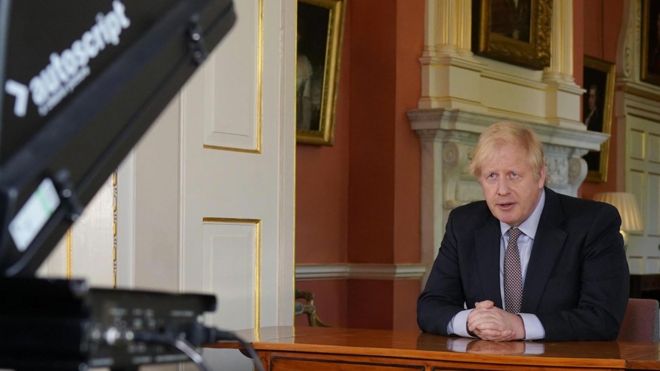
Boris Johnson has acknowledged frustration over the “complex” easing of England’s coronavirus lockdown.
The PM wrote in the Mail on Sunday that more complicated messages were needed during the next phase of the response and as restrictions changed.
His comments come amid mounting criticism of the way restrictions have been lifted in England.
Greater Manchester mayor Andy Burnham warned the PM risked a “fracturing of national unity” if he ignores regions.
And Labour leader Sir Keir Starmer has blamed Mr Johnson for the way Wales and England have diverged on the easing of lockdown.
In his article, Mr Johnson said that the government was attempting something that has “never had to be done before”.
He also cautioned that, while the UK is “leading the global effort” to find a vaccine, it “might not come to fruition”.
Mr Johnson said he trusted the “good sense of the British people” to observe the new rules and thanked the public for “sticking with us” so far.
The PM said he understood people “will feel frustrated with some of the new rules”, adding: “We are trying to do something that has never had to be done before – moving the country out of a full lockdown, in a way which is safe and does not risk sacrificing all of your hard work.”
But Mr Burnham said England’s regional mayors had been given no notice that lockdown restrictions were being eased.
Writing in the Observer, he warned that without additional support for the regions, there was a danger of a “second spike” of the disease.
He told BBC Breakfast that “the voice of the English regions isn’t being heard at the moment”, adding that the government has “lost some goodwill” with local authorities in its handling and communication of the lifting of lockdown measures.


Mr Burnham said that, despite having taken part in a call two weeks ago with Mr Johnson and eight other regional mayors, he was given no real notice of the measures announced last Sunday.
“On the eve of a new working week, the PM was on TV ‘actively encouraging’ a return to work,” he wrote in the article.
“Even though that would clearly put more cars on roads and people on trams, no-one in government thought it important to tell the cities that would have to cope with that.
“The surprisingly permissive package might well be right for the South East, given the fall in cases there. But my gut feeling told me it was too soon for the North.”
Mr Burnham called for the government to publish the infection rate – the R-number – per region in England.
If the R-number – currently between 0.5 and 0.9 in the UK – is higher than one, then the number of cases increases exponentially.
Move ignored
Meanwhile, the devolved nations, which have their own powers over restrictions, have ignored the move in England to a “stay alert” recommendation, and have kept their “stay at home” advice.
Scotland’s First Minister Nicola Sturgeon said she did not know what “stay alert” meant.
Labour’s Sir Keir said different approaches across the four UK nations to tackling coronavirus are not going to “help us out of this crisis”.
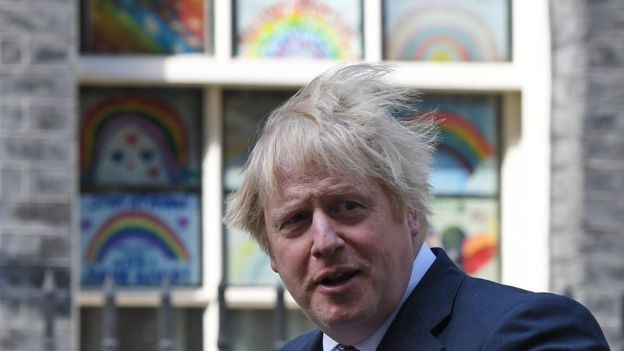
The PM’s comments come as the government’s plans to start reopening primary schools in England from 1 June have been challenged by local authorities in the north of England and teaching unions.
Liverpool and Hartlepool councils issued statements saying schools will not reopen at the start of next month as coronavirus cases continue to rise locally.
Schools in Wales will not reopen on 1 June, while those in Scotland and Northern Ireland may not restart before the summer holidays.
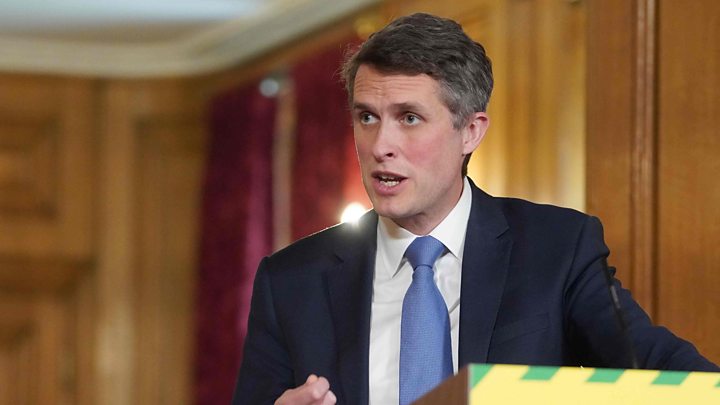
Meanwhile, Cabinet Office minister Michael Gove told Sky News that more than 17,000 people have been recruited to the contact tracing scheme on the Isle of Wight and that the government was on track to hit its 18,000 target by next week.
It comes as No 10 announced up to £93m to speed-up a new vaccine research lab.
The new fund will accelerate construction of the not-for-profit Vaccines Manufacturing and Innovation Centre in Oxfordshire so it can open a year earlier than planned, the government said.
Ministers hope the centre will be a “key component” of the UK’s coronavirus vaccine programme.
Business Secretary Alok Sharma said: “Once a breakthrough is made, we need to be ready to manufacture a vaccine by the millions.”
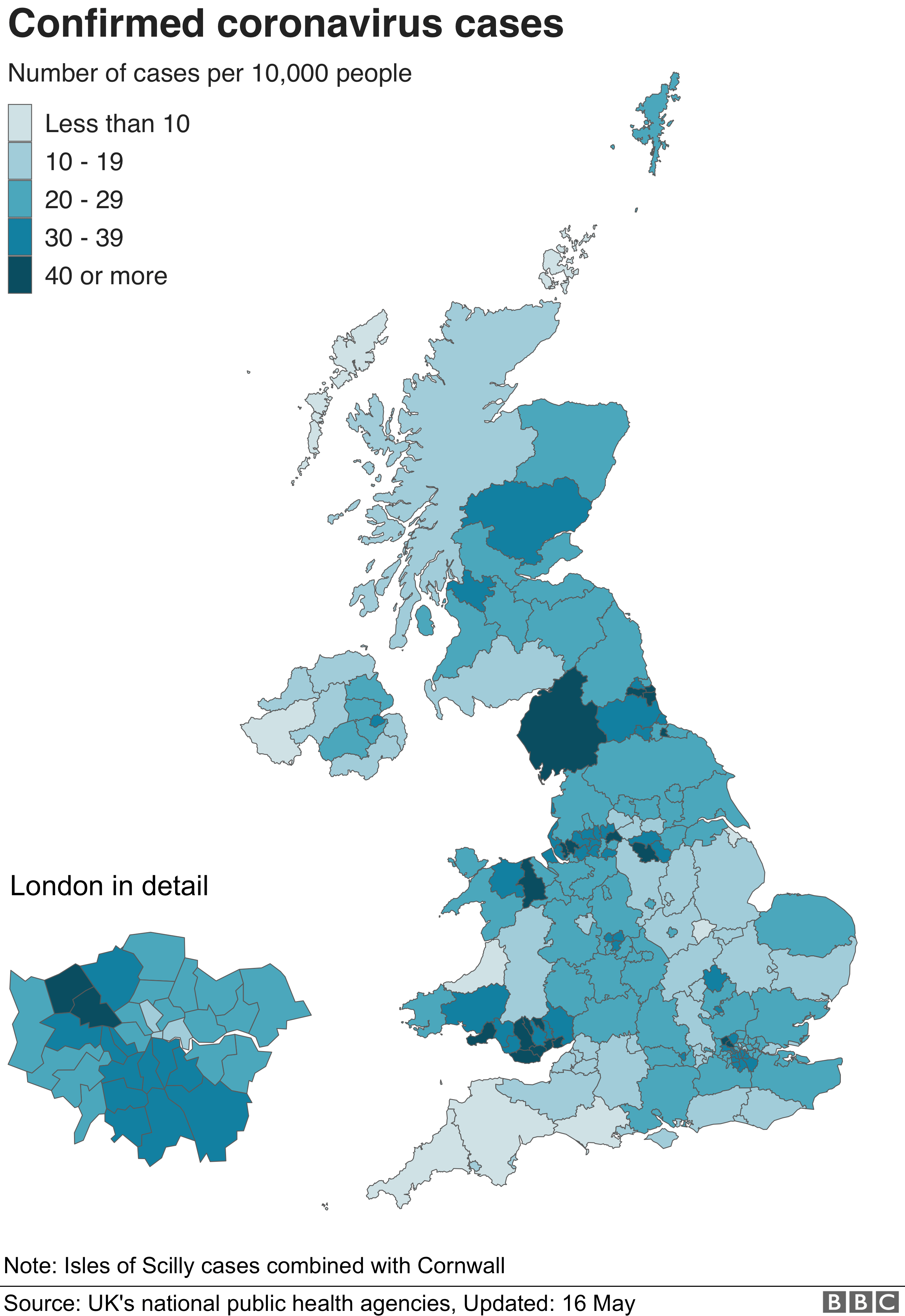
The number of people who have died with coronavirus in the UK across all settings increased by 468 on Saturday.
It takes the total number of UK deaths, in all settings following a positive coronavirus test, to 34,466.
There were 136,486 tests processed or sent out in the UK on Friday – the highest daily figure so far in the UK. The figure is not the same as the total number of people tested, which was 78,537 on Friday.
Boris Johnson has set a target of 200,000 tests a day by the end of May.
In other developments:
- People returned to beauty spots on Saturday in a “manageable” way after the public was urged to “think twice” before heading out
- Education Secretary Gavin Williamson has said “we owe it to the children” to reopen schools

